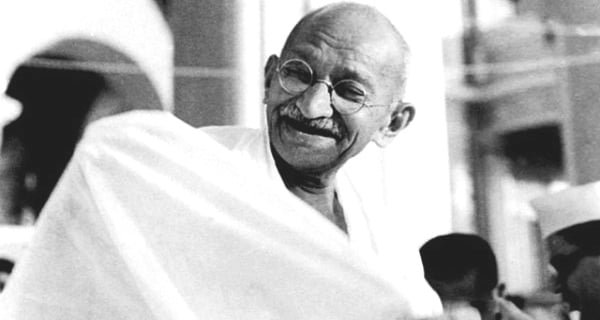
Gandhi Jayanti is a national holiday in India that commemorates the birth anniversary of Mahatma Gandhi, the father of the nation and the apostle of non-violence. It is also observed as the International Day of Non-Violence by the United Nations to honor Gandhi’s philosophy and practice of peace and justice. On this occasion, it is worth reflecting on the relevance of Gandhi’s thought in the modern world, where we face many challenges and crises that threaten our humanity and harmony.
What are Gandhi’s Thoughts?
Gandhi’s thoughts are not a systematic or dogmatic doctrine, but a living and evolving expression of his life and experiments with truth. It is based on his core values of truth, non-violence, love, compassion, service, self-reliance, and democracy. It is also influenced by his exposure to various religious, cultural, and intellectual traditions, such as Hinduism, Jainism, Buddhism, Christianity, Islam, Tolstoy, Ruskin, Thoreau, and others. Gandhi’s thoughts are not limited to any particular field or discipline but encompass various aspects of human existence, such as politics, economics, ethics, religion, education, health, environment, and social reform.
Why is Gandhi’s Thought Relevant in the Modern World?
Gandhi’s thought is relevant in the modern world because it offers a holistic and humanistic vision of life and society that can address the root causes of many of the problems that we face today. Some of the reasons why Gandhi’s thought is relevant are:
- Gandhi’s thought promotes non-violence as a way of life and a method of social change. He believed that violence is not only physical but also mental and moral and that it breeds more violence. He advocated for non-violent resistance or satyagraha as a means of asserting one’s rights and dignity without harming others. He also practiced non-violent communication and dialogue as a way of resolving conflicts and building trust. In a world where violence, terrorism, war, and hatred are rampant, Gandhi’s thought can inspire us to seek peaceful and constructive solutions to our differences and grievances.
- Gandhi’s thought advocates for social justice and equality for all. He fought against various forms of oppression and discrimination based on caste, class, race, gender, religion, or nationality. He championed the cause of the poor, the oppressed, the marginalized, and the exploited. He also envisioned a society where everyone has equal opportunity and access to basic needs and rights. In a world where injustice, inequality, poverty, and exploitation are widespread, Gandhi’s thought can motivate us to work for a more inclusive and equitable society.
- Gandhi’s thoughts encouraged self-reliance and swadeshi. He believed that one should be independent and self-sufficient in one’s needs and wants. He also promoted swadeshi or local production and consumption as a way of supporting one’s own community and economy. He opposed the exploitation and domination of foreign powers and corporations over one’s resources and markets. He also advocated for simple living and high thinking as a way of reducing one’s ecological footprint and enhancing one’s moral character. In a world where dependence, consumerism, globalization, and environmental degradation are prevalent, Gandhi’s thought can guide us to adopt a more sustainable and responsible lifestyle.
- Gandhi’s thought fosters democracy and pluralism. He believed that democracy is not only a form of government but also a way of life that respects the dignity and freedom of every individual. He also practiced participatory democracy by involving people in decision-making processes and empowering them to take charge of their own affairs. He also respected diversity and pluralism in culture, religion, ideology, and opinion. He sought to harmonize different perspectives and interests through dialogue and cooperation. In a world where authoritarianism, polarization, intolerance, and extremism are common, Gandhi’s thought can teach us to value democracy and pluralism as essential for human development.

How to Celebrate Gandhi Jayanti on 2 October?
There are many ways to celebrate Gandhi Jayanti on 2 October in a meaningful way that honors his legacy and message. Some of them are:
- Read or watch some of his writings or speeches to learn more about his life and ideas.
- Participate in prayer meetings or cultural programs that pay tribute to his memory.
- Engage in social service or community work that benefits the needy or the environment.
- Join or organize campaigns or movements that promote peace, justice, or non-violence.
- Share or discuss his thoughts with your friends, family, or social media followers.
- Reflect on your own actions and values and how they align with his principles.
Gandhi Jayanti 2 October is an opportunity to celebrate and appreciate the relevance of Gandhi’s thought in the modern world. By following his example and teachings, we can make a positive difference for ourselves, our society, and our planet. Happy Gandhi Jayanti!












































